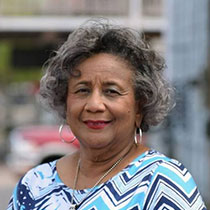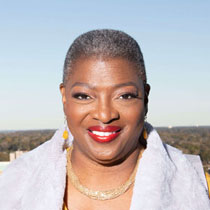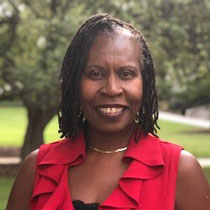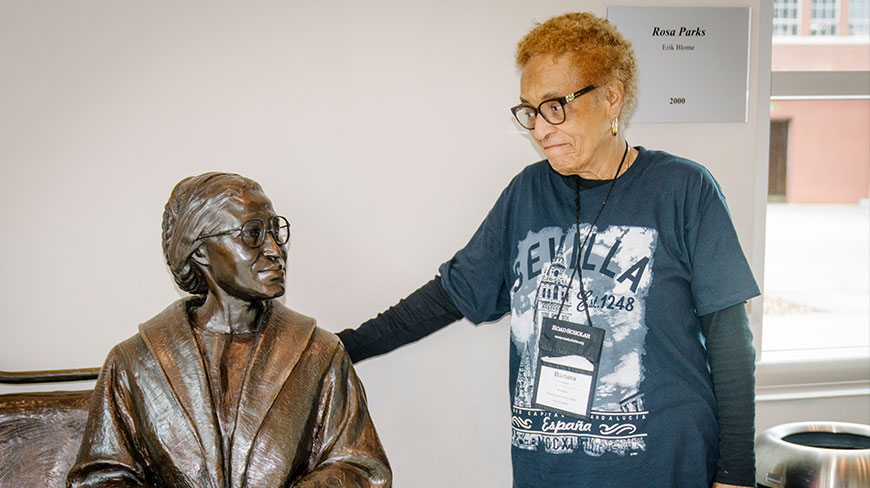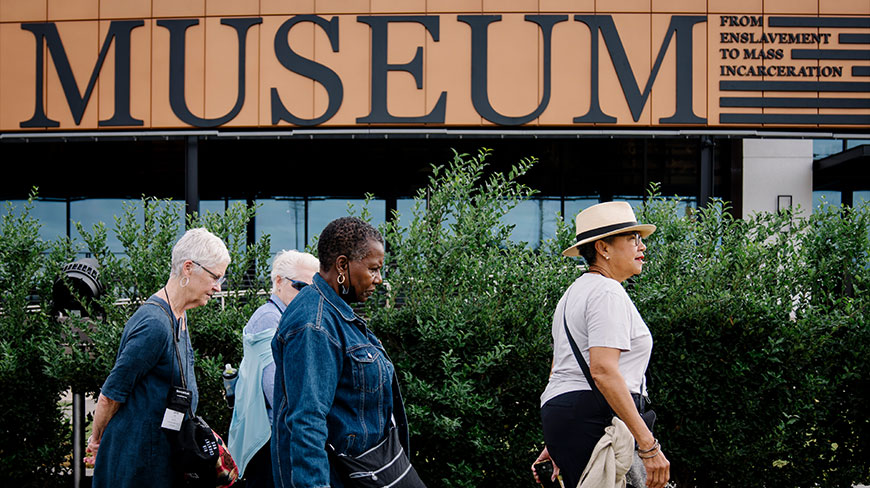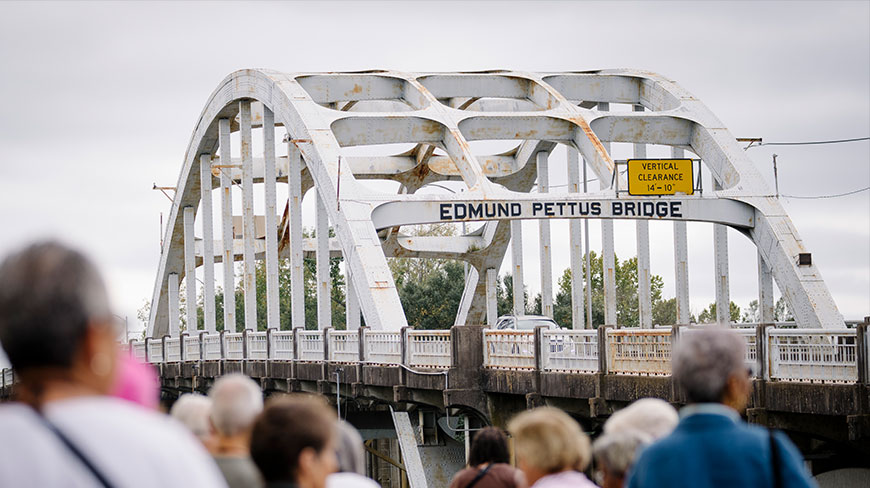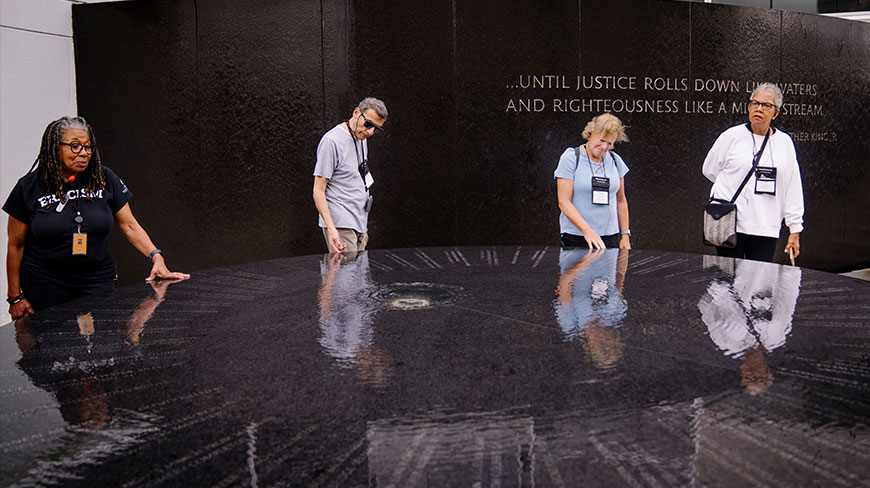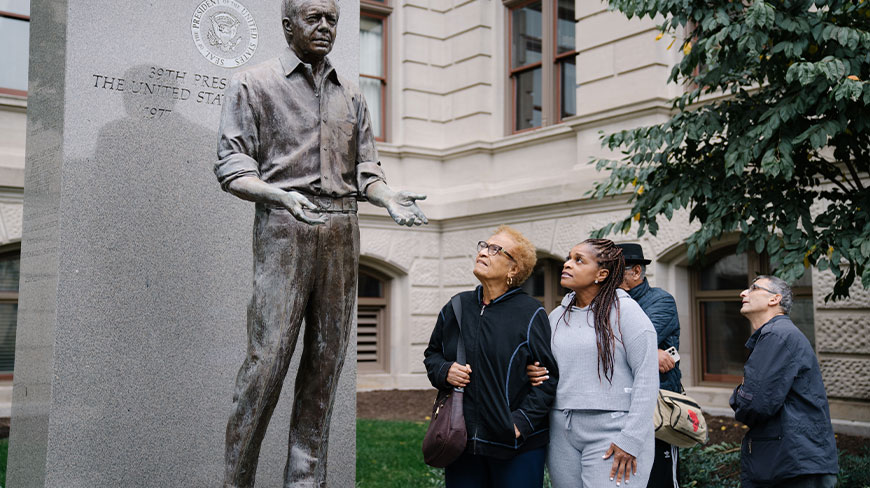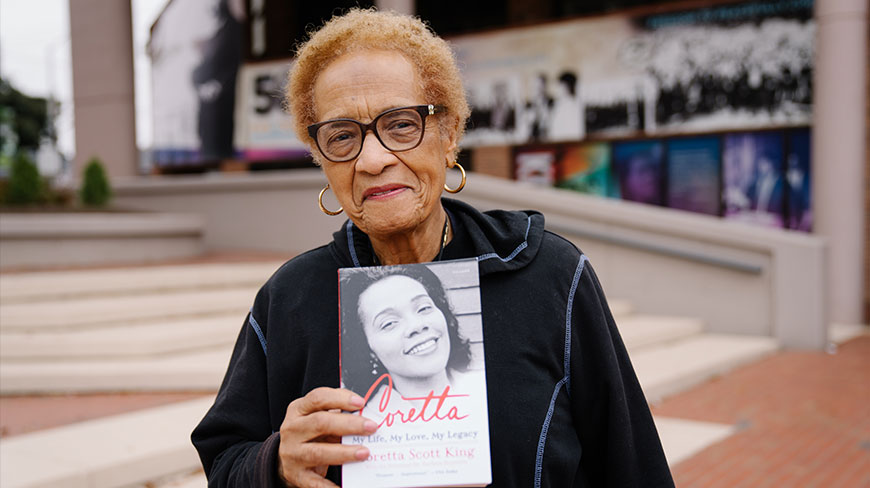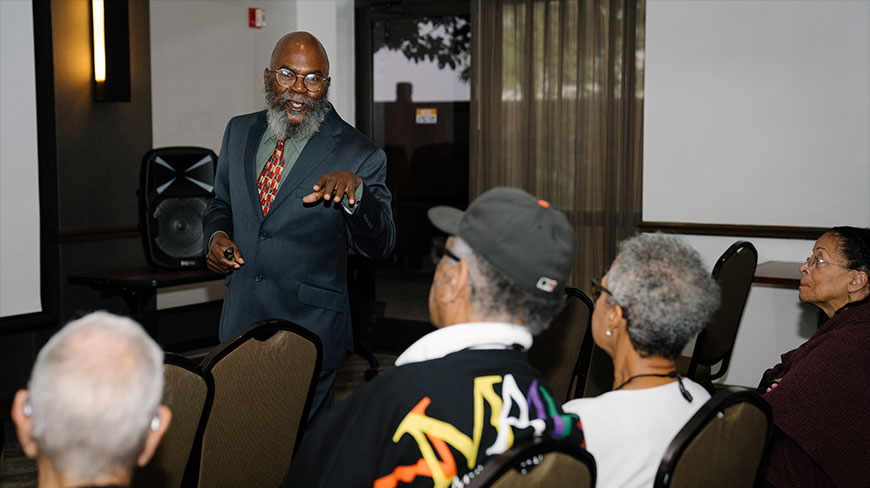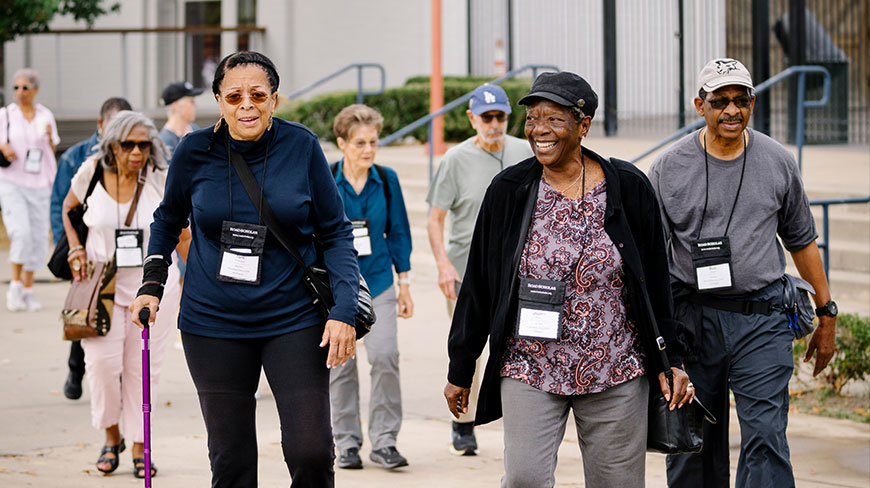A Perilous Path: Talking Race, Inequality, and the Law
by by Bryan Stevenson, Loretta Lynch, and Sherrilyn Ifill
This blisteringly candid discussion of the American dilemma in the age of Trump brings together the head of the NAACP Legal Defense Fund, the former attorney general of the United States, a bestselling author and death penalty lawyer, and a star professor for an honest conversation the country desperately needs to hear. Drawing on their collective decades of work on civil rights issues as well as personal histories of rising from poverty and oppression, these leading lights of the legal profession and the fight for racial justice talk about the importance of reclaiming the racial narrative and keeping our eyes on the horizon as we work for justice in an unjust time.
Courage to Dissent: Atlanta and the Long History of the Civil Rights Movement
by Tomiko Brown-Nagin
The Civil Rights movement that emerged in the United States after World War II was a reaction against centuries of racial discrimination. In this sweeping history of the Civil Rights movement in Atlanta--the South's largest and most economically important city--from the 1940s through 1980, Tomiko Brown-Nagin shows that the movement featured a vast array of activists and many sophisticated approaches to activism. Long before "black power" emerged and gave black dissent from the mainstream civil rights agenda a new name, African Americans in Atlanta debated the meaning of equality and the steps necessary to obtain social and economic justice.
This groundbreaking book uncovers the activism of visionaries--both well-known legal figures and unsung citizens--from across the ideological spectrum who sought something different from, or more complicated than, "integration." Local activists often played leading roles in carrying out the integrationist agenda of the NAACP, but some also pursued goals that differed markedly from those of the venerable civil rights organization. Brown-Nagin discusses debates over politics, housing, public accommodations, and schools. She documents how the bruising battle over school desegregation in the 1970s, which featured opposing camps of African Americans, had its roots in the years before Brown v. Board of Education.
Eyes on the Prize: America's Civil Rights Years, 1954-1965
by Juan Williams and Julian Bond
From the Montgomery bus boycott to the Little Rock Nine to the Selma–Montgomery march, thousands of ordinary people who participated in the American civil rights movement; their stories are told in Eyes on the Prize. From leaders such as Martin Luther King, Jr., to lesser-known figures such as Barbara Rose Johns and Jim Zwerg, each man and woman made the decision that somethinghad to be done to stop discrimination. These moving accounts and pictures of the first decade of the civil rights movement are a tribute to the people, black and white, who took part in the fight for justice and the struggle they endured.
Just Mercy
by Bryan Stevenson
An unforgettable true story about the potential for mercy to redeem us, and a clarion call to end mass incarceration in America — from one of the most inspiring lawyers of our time.
Bryan Stevenson was a young lawyer when he founded the Equal Justice Initiative, a nonprofit law office in Montgomery, Alabama, dedicated to defending the poor, the incarcerated, and the wrongly condemned.
Just Mercy tells the story of EJI, from the early days with a small staff facing the nation’s highest death sentencing and execution rates, through a successful campaign to challenge the cruel practice of sentencing children to die in prison, to revolutionary projects designed to confront Americans with our history of racial injustice.
One of EJI’s first clients was Walter McMillian, a young Black man who was sentenced to die for the murder of a young white woman that he didn’t commit. The case exemplifies how the death penalty in America is a direct descendant of lynching — a system that treats the rich and guilty better than the poor and innocent.
Lynching in America: Confronting the Legacy of Racial Terror
by Equal Justice Initiative
Lynching in America: Confronting the Legacy of Racial Terror documents EJI's multi-year investigation into lynching in twelve Southern states during the period between Reconstruction and World War II. EJI researchers documented 4075 racial terror lynchings of African Americans in Alabama, Arkansas, Florida, Georgia, Kentucky, Louisiana, Mississippi, North Carolina, South Carolina, Tennessee, Texas, and Virginia between 1877 and 1950 - at least 800 more lynchings of black people in these states than previously reported in the most comprehensive work done on lynching to date. Lynching in America makes the case that lynching of African Americans was terrorism, a widely supported phenomenon used to enforce racial subordination and segregation. Lynchings were violent and public events that traumatized black people throughout the country and were largely tolerated by state and federal officials.
Politics, Civil Rights, and Law in Black Atlanta 1870-1970
by Herman "Skip" Mason, Jr.
Selma, Lord, Selma: Girlhood Memories of the Civil Rights
by Sheyann Webb-Christburg, Rachel West Nelson Millhouse, Frank Sikorand
Sheyann Webb was eight years old and Rachel West was nine when Dr. Martin Luther King Jr. arrived in Selma, Alabama, on January 2, 1965. He came to organize non-violent demonstrations against discriminatory voting laws. Selma, Lord, Selma is their firsthand account of the events from that turbulent winter of 1965--events that changed not only the lives of these two little girls but the lives of all Alabamians and all Americans. From 1975 to 1979, award-winning journalist Frank Sikora conducted interviews with Webb and West, weaving their recollections into this luminous story of fear and courage, struggle a
Voices of Freedom: An Oral History of the Civil Rights Movement from the 1950s Through the 1980s
by Henry Hampton and Steve Fayer
In this monumental volume, Henry Hampton, creator and executive producer of the acclaimed PBS series Eyes on the Prize, and Steve Fayer, series writer, draw upon nearly one thousand interviews with civil rights activists, politicians, reporters, Justice Department officials, and hundreds of ordinary people who took part in the struggle, weaving a fascinating narrative of the civil rights movement told by the people who lived it.
Join brave and terrified youngsters walking through a jeering mob and up the steps of Central High School in Little Rock. Listen to the vivid voices of the ordinary people who manned the barricades, the laborers, the students, the housewives without whom there would have been no civil rights movements at all.
This remarkable oral history brings to life country's great struggle for civil rights as no conventional narrative can. You will hear the voices of those who defied the blackjacks, who went to jail, who witnessed and policed the movement; of those who stood for and against it—voices from the heart of America.
Walking with the Wind: A Memoir of the Movement
by John Lewis and Michael D'Orso
The award-winning national bestseller, Walking with the Wind, is one of our most important records of the American civil rights movement. Told by John Lewis, who Cornel West calls a “national treasure,” this is a gripping first-hand account of the fight for civil rights and the courage it takes to change a nation.
In 1957, a teenaged boy named John Lewis left a cotton farm in Alabama for Nashville, the epicenter of the struggle for civil rights in America. Lewis’s adherence to nonviolence guided that critical time and established him as one of the movement’s most charismatic and courageous leaders. Lewis’s leadership in the Nashville Movement—a student-led effort to desegregate the city of Nashville using sit-in techniques based on the teachings of Gandhi—set the tone for major civil rights campaigns of the 1960s. Lewis traces his role in the pivotal Selma marches, Bloody Sunday, and the Freedom Rides. Inspired by his mentor, Dr. Martin Luther King, Jr., Lewis’s vision and perseverance altered history. In 1986, he ran and won a congressional seat in Georgia, and remains in office to this day, continuing to enact change.
The late Edward M. Kennedy said of Lewis, “John tells it like it was…Lewis spent most of his life walking against the wind of the times, but he was surely walking with the wind of history.”
Where Peachtree Meets Sweet Auburn: A Saga of Race and Family
by Gary M. Pomerantz
A fascinating tale of two cities told through the rise of two of Atlanta's most illustrious political families...highly significant in what it reveals about ambition, hard work, success, and race relations.
You Have to Be Prepared to Die Before You Can Live
by Paul Kix
From journalist Paul Kix, the riveting story, never before fully told, of the 1963 Birmingham Campaign—ten weeks that would shape the course of the Civil Rights Movement and the future of America.
It’s one of the iconic photographs of American history: A Black teenager, a policeman and his lunging German Shepherd. Birmingham, Alabama, May of 1963. In May of 2020, as reporter Paul Kix stared at a different photo–that of a Minneapolis police officer suffocating George Floyd–he kept returning to the other photo taken half a century earlier, haunted by its echoes. What, Kix wondered, was the full legacy of the Birmingham photo? And of the campaign it stemmed from?
In You Have To Be Prepared To Die Before You Can Begin To Live, Paul Kix takes the reader behind the scenes as he tells the story of the Southern Christian Leadership Conference’s pivotal 10 week campaign in 1963 to end segregation in Birmingham, Alabama. At the same time, he also provides a window into the minds of the four extraordinary men who led the campaign—Martin Luther King, Jr., Wyatt Walker, Fred Shuttlesworth, and James Bevel. With page-turning prose that read like a thriller, Kix’s book is the first to zero in on the ten weeks of Project C, as it was known—its specific history and its echoes sounding throughout our culture now. It’s about Where It All Began, for sure, but it’s also the key to understanding Where We Are Now and Where We Will Be. As the fight for equality continues on many fronts, Project C is crucial to our understanding of our own time and the impact that strategic activism can have.
